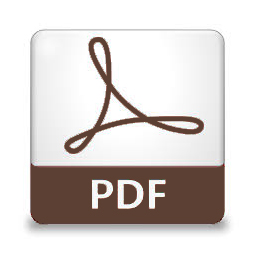DIGNITY
UZA Manifesto Part 3 on Dignity 
ACCESS & OPPORTUNITY: Zimbabwe has a glaring imbalance in access to resources and the availability of opportunities in the different sectors of society. The ruling elite and their cronies have amassed wealth by grabbing resources that include land, mineral resources and entrepreneurial opportunities. Among the groups that are disadvantaged with regards to access and opportunity are women and girls, the youth, elderly citizens, people with disabilities and war veterans.
What UZA Will Do To Improve Access & Opportunities in Business For All Citizens: One of our long-term objectives is to reduce unemployment by creating and promoting productive opportunities in all sectors of Zimbabwe’s economy. We encourage Zimbabweans to recognize and value potential opportunities for locally earned prosperity.
The UZA government shall:
What UZA Will Do To Improve Political Participation For All Citizens:
The UZA government shall:
Gender Equality:
The promotion of gender equality should be a priority issue for the government of Zimbabwe. At an international level, Zimbabwe is a party to a number of regional and international conventions and treaties that support gender equality. The importance of gender equality is also reflected in Section 56 of the Constitution of Zimbabwe, which provides a strong framework for the protection and promotion of the rights of women and girls. It states that women and men have the right to equal treatment, including the right to equal opportunities in political, economic, cultural and social spheres. The Constitution defines equality for all persons and goes further to explicitly outlaw discrimination on the grounds of gender.
What UZA Will Do To Promote Gender Equality: The UZA government will strengthen the position of Zimbabwe's women as the cornerstones of our society. Our government will ensure women are given total and requisite support in their homes and the respect and advancement of their efforts in their workplaces and in nation building.
The UZA government shall:
Youth:
Youth (aged 15-35 years) have been deprived of opportunities due to the economic challenges bedevilling Zimbabwe. As a result of the failing economy, the once vibrant education and skills training programmes are now seriously compromised and ineffective. Additionally, millions of parents have been forced to migrate to the diaspora in search of jobs, leaving the youth behind without parental guidance. All of these factors have resulted in a significant increase in illicit substance use, promiscuity, crime and other problems affecting the youth. .
What UZA Will Do To Promote Our Youth:
The UZA government shall:
Elderly:
The elderly in Zimbabwe face challenges in accessing decent shelter and food. They have become largely dependent on handouts from non-governmental organisations and they hardly have access to health services. Adding to this, the pensions of most elderly citizens in our country have also been eroded by inflation yet they carry the greatest burden of caring for most of the orphaned children in Zimbabwe whose parents have died of HIV or have migrated to the diaspora.
Chapter 2, Section 21 of The Constitution of Zimbabwe states that the State and all institutions and agencies of government at every level must take reasonable measures, including legislative measures, to secure respect, support and protection for elderly persons and to enable them to participate in the life of their communities.
The State and all institutions and agencies of government at every level must endeavour to encourage elderly persons to participate fully in the affairs of society; to provide facilities, food and social care for elderly persons who are in need; to develop programmes to give elderly persons the opportunity to engage in productive activity suited to their abilities and consistent with their vocations and desires; and to foster social organisations aimed at improving the quality of life of elderly persons. None of these objectives of the Constitution is being upheld.
What UZA Will Do For Our Elderly Citizens:
The UZA government shall:
Persons with Disabilities:
Chapter 2, Section 22 of the Constitution of Zimbabwe states that the State and all institutions and agencies of government at every level must recognise the rights of persons with physical or mental disabilities, in particular, their right to be treated with respect and dignity.
The State and all institutions and agencies of government at every level must assist persons with physical or mental disabilities to achieve their full potential and to minimise the disadvantages they suffer. The amenities which the public has access to are also to be accessible to persons with disabilities. In particular, the State and all institutions and agencies of government at every level must:
What UZA Will Do For Our Citizens with Disabilities:
The UZA government shall:
War Veterans & Victims of War:
Our liberation struggle will always be a part of us as Zimbabweans. We recognise the bravery, patriotism and sacrifices made during the liberation struggle which brought for our nation the attainment of independence. UZA stands proud on the shoulders of our national heroes. We do not take for granted their sacrifices for a better Zimbabwe. As we make our economy work, we shall make sure that war veterans benefit from the economy and are empowered to take part in economic activities.
What UZA Will Do For War Veterans and Victims of War:
The UZA government shall: